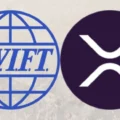
- Traditional financial institutions collaborating with Chainlink could revolutionize international asset transfer processing.
- The Hong Kong authority will now focus on wholesale payments as the next step towards introducing e-HKD.
The Hong Kong Monetary Authority (HKMA) has its Phase 2 report released through the e-HKD pilot program. In it becomes a big one Success working with Chainlink, ANZ, China AMC and Fidelity International noted. The partnership tested crosschain settlements for tokenized assets.
Chainlink’s CCIP and ACE have been used in a pilot project showing how investors in Australia can securely purchase tokenized shares of a Hong Kong money market fund.
The Hong Kong Monetary Authority (HKMA) released a report on Phase 2 of its e-HKD program, publishing the results of multiple industry initiatives, including a key cross-chain settlement solution powered by Chainlink with ANZ, China AMC, and Fidelity International.… pic.twitter.com/uMGYsjW8TB
— Chainlink (@chainlink) October 28, 2025
The transactions were settled via e-HKD and tokenized deposits. The experiment addressed key stumbling blocks, such as trustworthy data transmission, crosschain connectivity, and automatically assured regulatory compliance.
Chainlink’s technology enables the secure transfer of values and information between different blockchains. ACE took over the regulation of transactions in real time.
The result is a complete end-to-end transaction system that meets all required standards.
HKMA continues to innovate
Since 2017, the HKMA has been innovating for a central bank digital currency based on DLT (distributed ledger technology). based.
Phase 2 was then about proving the commercial feasibility for retailing e-HKD. Eleven pilot projects were carried out on three topics:
- RWA processing
- Programmability
- Offline payments.
The results showed that e-HKD and tokenized deposits have similar advantages, including fast, programmable and low-cost transactions.
The perception of e-HKD and tokenized deposits is similar, as Hong Kong has a stable banking system and consumer-friendly legal protections.
As development shows, can be the actual benefit best in wholesale and for large amounts be realized.
Implementation of the findings depends on global CBDC development
Die HKMA strives until mid-2026 a solid foundation for future e-HKD implementations in relation to Politics, legislation and technology. Full implementation will largely depend on global CBDC developments.
To promote industry collaboration, the HKMA will soon publish a common set of token standards one one smooth introduction of programmability of digital moneyto ensure.
The standards will form the basis for a retail-ready form of e-HKD, which will serve as a catalyst for financial innovation for both businesses and individuals in Hong Kong in the future.
The results of Phase 2 show how collaboration between traditional financial institutions and blockchain networks How Chainlink can revolutionize cross-border settlement. Nonetheless, the HKMA’s future in the digital currency space appears to be more promising than ever.






No Comments